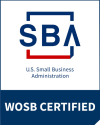“…Epidemiologists suggest eight weeks might be needed to arrest this outbreak. Administrators, students, teachers and parents need to get busy figuring out how to continue the education of our children while contributing to this community-wide public health effort.” Tom Bossert, former homeland security adviser to President Donald Trump, writing in The Washington Post.
California public and charter schools educate nearly 800,000 children with special needs each year. We are witnessing temporary and extended school closures on a daily basis. Late last week, a Chicago public high school serving about 200 students with complex special needs was closed after a school aide tested positive for the coronavirus. Many of these students require 24-hour care so their parents and caregivers were heavily impacted.
Don’t get caught off-guard! Forget about the toilet paper–parents and caregivers of children with special needs must act quickly to prepare for school closures and possible quarantines.
Action Checklist:
- If you have not already done so, contact your child’s case carrier immediately and get a copy of the most recent Individualized Education Program (IEP), Progress Notes and Psychoeducational Evaluation. If your child is receiving supplemental school-based services, for example Speech and Language, Counseling or Occupational Therapy, obtain a copy of those assessments as well. Your child’s IEP is the blueprint for her education. Without it, she cannot obtain the type and level of education that she needs.
- Develop an emergency childcare plan. You probably won’t receive any notice of school closures so you must plan in advance. Due to this public health crisis, Grandma and Auntie may not be available to watch your child, so make sure you have a Plan B.
- Include detailed instructions in your emergency child care plan, such as a schedule for medications, food allergies and the like. Make sure to include your contact information and at least two other emergency contacts.
- If your child has a developmental disability, contact your Regional Center case manager to arrange for respite care.
- Contact your employer now and alert her that you may need to work from home, use flex-time or have paid leave in order to care for your child if schools close.
- Reach out to support groups. Connect with your neighbors by way of apps such as Nextdoor. Explore online resources and join social media groups on Facebook. Reach out to home-schooler groups and parent organizations such as Mocha Moms who are real pros. You don’t know where help will come from when you need it, so start reinforcing your support network now.
- If your child has severe mental health issues and is in a residential treatment facility, make sure there are plans for transport and care in the event of facility closure.
- School districts and charter schools may use some form of distance learning in the event of extended closures. Make sure that you have the hardware and software that your child needs in order to “virtually” communicate with his teacher. IEP services such as Resource, Speech or Counseling should also be provided online.
- Keep track of all expenses for tutoring or IEP-related services during an extended school closure. You may be entitled to reimbursement when classes resume.
- Follow all Red Cross tips such as cleaning and disinfecting and maintaining an adequate supply of medications. Prepare your home for anticipated quarantine. As you know, these health and safety precautions are especially important if your child is immuno-compromised.
Ideally, you should request your child’s entire school record (especially if she attends a charter school), however given the current crisis and time pressures, at the very least obtain her current IEP and most recent assessments. If your child attends a private or parochial school, request at least copies of his most recent 504 Plan and formal testing.
At this time, no one knows how long school closures will last. We have concerns that some charter schools will not reopen at all. You must preserve your child’s educational blueprint in order to ensure that his special education and related services are followed to the extent possible during and after this public health crisis. Keep your expectations realistic and your goals modest. For example, instead of expecting all services and progress to remain the same, try to at least guard against regression of your child’s academic, social, emotional or behavioral growth.
Finally, remember that school district administrators, teachers, providers and staff have families too. Many of them are also parents of special needs children and are trying to navigate this crisis just like you. With patience, compassion and preparedness, we will weather this storm together.

Jean Murrell Adams is an entrepreneur-attorney, wife and mother living in Benicia, California. She is the founder and Senior Managing Attorney for ADAMS ESQ, a special education law firm serving families of children with special education needs throughout California and Nevada. Mrs. Adams authored the recent publication The Top 5 IEP Mistakes and How to Avoid Them.

